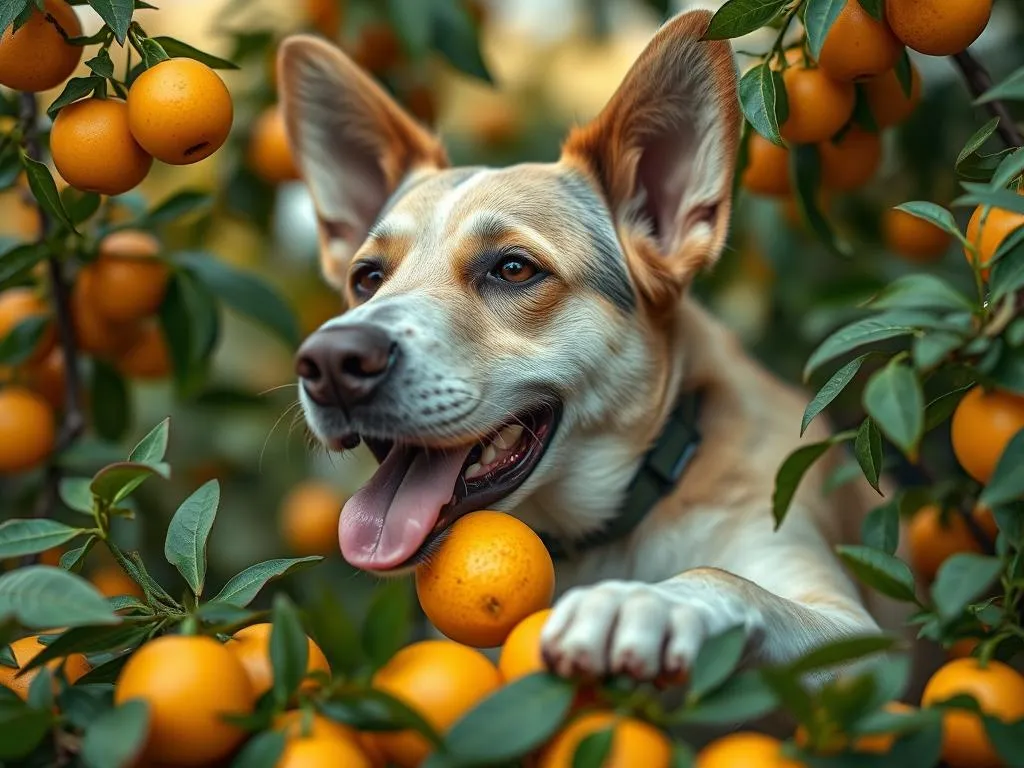
Introduction
Dog nutrition is an essential aspect of pet ownership that often gets overlooked. A balanced diet is crucial for a dog’s overall health and well-being. Many pet owners may not realize that their furry friends require specific nutrients just like humans do. With a plethora of dog food options available, distinguishing between what is safe and healthy versus what could be harmful can be confusing. One common question that arises is: can dogs eat kumquats?
Fruits can be a great addition to a dog’s diet, as they provide essential vitamins and minerals. However, not all fruits are created equal when it comes to canine consumption. This article will delve into the specifics of kumquats, their nutritional profile, and whether they are a safe snack for your dog.
Understanding Dog Nutrition
Basic Nutritional Needs of Dogs
Every dog requires a balanced diet that includes macronutrients and micronutrients.
- Proteins are vital for building and repairing tissues. They are also crucial for the production of enzymes and hormones.
- Fats provide energy and support cell growth. They also help in the absorption of certain vitamins.
- Carbohydrates serve as a source of energy and aid in digestive health.
In addition to macronutrients, dogs need various vitamins and minerals for proper bodily functions, including immune support, bone health, and overall vitality.
Common Food Types for Dogs
Pet owners often face the choice between commercial dog food and homemade diets.
- Commercial dog food is designed to meet the nutritional requirements of dogs and is convenient. However, not all brands are equal, so it’s essential to choose high-quality options.
- Homemade diets allow pet owners to control ingredients but require careful planning to ensure nutritional balance.
Treats and snacks also play a role in a dog’s diet, but they should complement the main food source rather than replace it.
The Role of Fruits in Dog Nutrition
Nutritional Benefits of Fruits for Dogs
Fruits can offer several health benefits for dogs:
- Vitamins such as A, C, and E are abundant in many fruits and contribute to a healthy immune system.
- Antioxidants help fight free radicals, reducing the risk of chronic diseases.
- Fruits are generally high in fiber, which aids in digestion and can help maintain a healthy weight.
- They can also provide hydration due to their high water content.
Safe Fruits for Dogs
While many fruits are safe for dogs, some are better choices than others. Here’s a list of dog-friendly fruits:
- Apples: A good source of vitamins A and C.
- Blueberries: Packed with antioxidants.
- Bananas: High in potassium, great for energy.
Less common fruits can also be beneficial, but it’s crucial to research their effects before introducing them into a dog’s diet.
Kumquats – An Overview
What are Kumquats?
Kumquats are small, citrus fruits that resemble tiny oranges. They are native to Asia and have a unique flavor profile that is both sweet and tart. Kumquats are distinguished by their edible skin, which is sweeter than the flesh inside.
Nutritionally, kumquats are rich in:
- Vitamin C: Important for immune function.
- Fiber: Aids in digestion.
- Potassium: Helps regulate blood pressure.
Common Uses of Kumquats
In human diets, kumquats are often used in various culinary applications. They can be eaten raw, candied, or used in salads, desserts, and even as a garnish for cocktails. Their unique taste and versatility have made them popular in many cuisines, particularly in Asian and Mediterranean dishes.
Can Dogs Eat Kumquats?
Safety Concerns
The primary concern when considering whether dogs can eat kumquats is the potential toxicity of citrus fruits. While kumquats themselves are not considered toxic to dogs, they do contain citric acid, which can cause gastrointestinal upset in some dogs.
Symptoms of adverse reactions may include:
- Vomiting
- Diarrhea
- Abdominal discomfort
Some dogs may be more sensitive to citrus fruits than others, so it’s essential to monitor your dog closely after introducing kumquats.
Nutritional Benefits and Drawbacks
Kumquats provide several nutritional benefits, including high levels of vitamin C and fiber. However, the citric acid content may lead to digestive issues for some dogs.
Advantages of kumquats for dogs:
- Rich in vitamins and minerals.
- Can offer hydration benefits due to high water content.
Potential drawbacks:
- Citric acid may irritate a dog’s stomach.
- Some dogs may have allergic reactions.
Proper Serving Sizes
If you decide to give your dog kumquats, moderation is key. A small piece of kumquat can be an occasional treat, but it should not replace their primary food source.
Preparation guidelines:
- Wash the kumquat thoroughly to remove any pesticides or chemicals.
- Cut it into small pieces to prevent choking.
- Start with a small amount to gauge your dog’s reaction.
Alternatives to Kumquats
Other Citrus Fruits
While kumquats may be safe in small amounts, other citrus fruits like lemons, limes, and grapefruits can be harmful to dogs. These fruits contain higher levels of citric acid, which can lead to more severe gastrointestinal distress.
Healthier Fruit Options
If you’re looking for safe fruit alternatives that provide similar nutritional benefits, consider these options:
- Watermelon: Hydrating and low in calories.
- Peaches: Packed with vitamins A and C.
- Carrots: While not a fruit, they are crunchy and nutritious, making them a great snack.
Incorporating these safe fruits into your dog’s diet can offer health benefits without the risks associated with kumquats.
Conclusion
To answer the question, can dogs eat kumquats? The answer is yes, but with caution. While kumquats are not toxic to dogs, their citric acid content can cause digestive issues in some pets. Always consult with your veterinarian before introducing any new food into your dog’s diet, and start with small quantities to monitor for any adverse reactions.
In summary, maintaining a balanced diet for your dog is crucial for their health, and fruits can play a beneficial role. However, ensuring that the fruits you offer are safe and suitable for your dog’s specific needs is paramount.
FAQs
Can dogs eat other citrus fruits?
Most citrus fruits, such as lemons, limes, and grapefruits, should be avoided as they can cause gastrointestinal upset and other health issues in dogs.
What should I do if my dog eats a kumquat?
If your dog consumes a kumquat and shows signs of distress, such as vomiting or diarrhea, consult your veterinarian immediately for advice.
Are there specific breeds that should avoid certain fruits?
While all dogs can have different sensitivities, it’s essential to consult your veterinarian about any specific dietary restrictions for breeds known to have health issues.
How can I tell if a fruit is safe for my dog?
Always research fruits before offering them to your dog, and consult with a veterinarian if you’re unsure about their safety. Look for signs of allergic reactions or digestive upset after introducing new foods.









